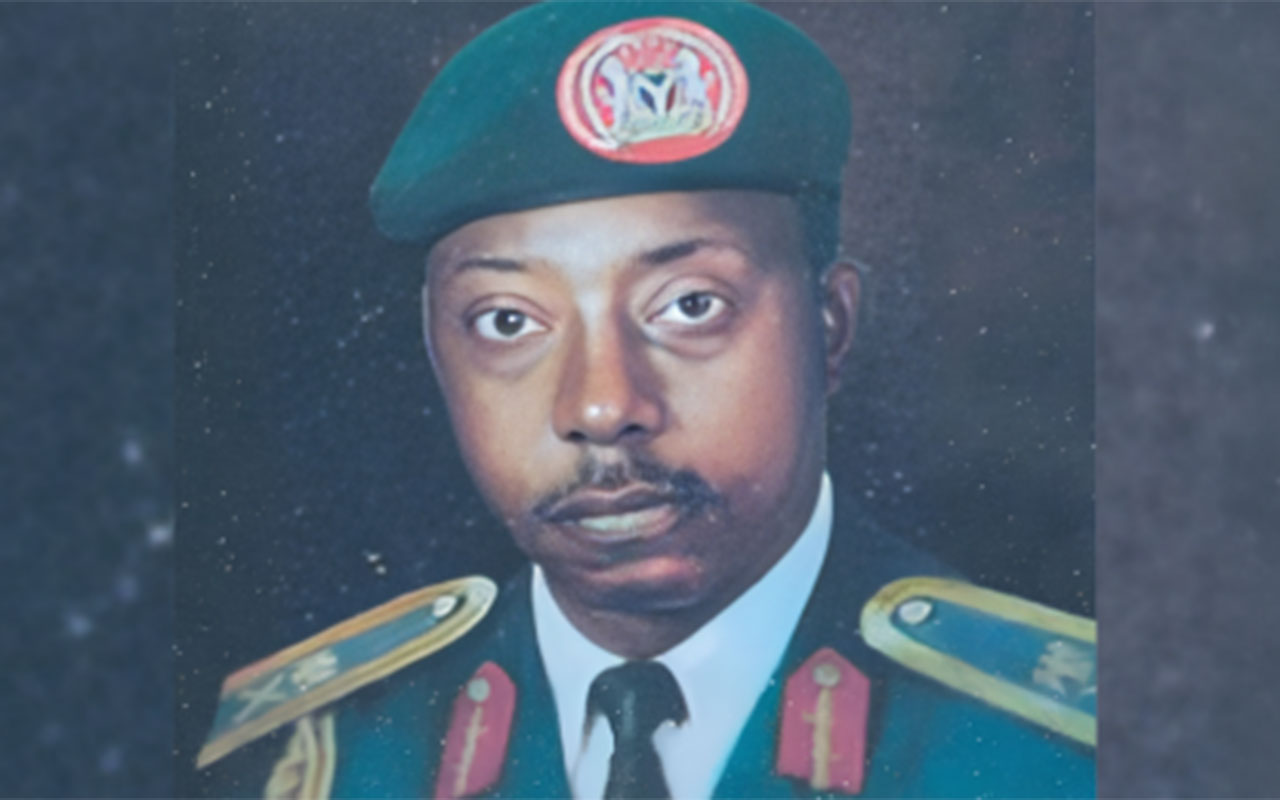 Every nation and indeed every society is helped along by the presence of individuals whose sobriety and humane approach to issues allow men to apply some sense and sensibility in periods of great agitation.
Every nation and indeed every society is helped along by the presence of individuals whose sobriety and humane approach to issues allow men to apply some sense and sensibility in periods of great agitation.
Such an individual was General Mohammed Christopher Alli, former Chief of Army Staff (COAS) in the period 1993-1994 and who died on November 19, 2023 at the age of 79. General Alli was not just an Army officer, he was a fine gentleman, a much-decorated officer, principled, disciplined and he carried out his assignments with matchless diligence.
General Alli once described as an ‘Army of politicians,’ many who placed personal gains above national interest. General Alli will be remembered for his almost unparalleled effort to actualise the “people’s mandate” during the turbulent days of June 12, 1993 struggle. Despite his high ranking position as the COAS under General Abacha as Head of State, Alli’s activities and principled position to honour the acclaimed winner of that Presidential election, Moshood Abiola with the people-given mandate led him to early retirement from the Army.
But Alli served the Nigeria Army, the Armed Forces of Nigeria and the nation with honour and dedication in various capacities. His love for the country as a nationalist, and an ardent believer of One Nigeria, reveals his passion for a unified nation as he said, in an interview: “I am ready to die for the unity of Nigeria for which I fought for three years.”
Born of a Muslim father and a Christian mother in Onitsha, Anambra State on December 25, 1944. He was named Mohammed Baba Alli at birth, but at baptism, he was Christened Christopher and Emmanuel but settled for the latter. Perhaps, it was ambition or fate that made him take to his father’s footsteps, who was a World War II veteran and served in the Royal West African Frontier. He attended Trinity Primary School and Metropolitan College both in Onitsha and left college in 1967. General Alli attended the Nigerian Military School Zaria, and later studied at the Nigerian Defence Academy, Kaduna. He also attended Command and Staff College, Jaji and the National Defence College, Abuja.
As a soldier, Alli began his military career in 1968 as a Commissioned Second Lieutenant and served in various capacities including the Directorate of military intelligence as well as Commander of the Nigerian Army Training and Doctrine Command.
He saw action as a Battalion Commander during the Nigerian Civil War. He also commanded the Economic Community of West African States Monitoring Group (ECOMOG) in Liberia, from (1996-1998). Also, he was General Officer Commanding (GOC) One Mechanised Division, Nigerian Army. General Alli’s distinguished military career and contributions to the Nigerian Army saw him being awarded Grand Commander of the Order of the Niger (GCON) in 1994.
General Alli was a soldier of great repute. He received professional training at the Warminster in the United Kingdom, in Pakistan and the National Defence College of India. His diligence, hard work and professionalism saw him as Nigeria’s Defence Attaché to Zimbabwe.
He was one-time military Administrator of Plateau State between (1985-1986) and many years later, in May 2004, he was appointed by former President Olusegun Obasanjo as Administrator in Plateau State, after Mr. President declared a state of emergency in the state over a bloody sectarian violence.
General Alli developed the Plateau Peace Programme (PPP) involving dialogue between religious, ethnic and community leaders and the Statewide Peace Conference. Alli’s measures were successful in calming the situation and he handed power back to the civilian government in November 2004.
Principled, fair-minded and with a detribalised outlook, General Alli was known less in person and more by reputation and his contributions to nation building. He is identified as one of those critical thinkers, philosophers, albeit, a General in the Nigerian Army whose work (The Federal Republic of Nigerian Army) finds a befitting logical space in the contemporary African philosophical tapestry. Notwithstanding his early exit from power and of course, the Army, the nation was fortunate to have a man like General Alli in the corridor of power at a period it could have been torn apart.
In the face of current realities, General Alli described the Nigerian Army on his pulling out parade as one of “anything is possible.” He was convinced that the involvement of soldiers in politics had destroyed the Army. For him, the continued stay of the Army in politics has affected the nation negatively. It was no longer well-equipped because of fear of coups by those in power.
In life and in death, General Alli rightly deserved the encomiums showered on him. Those who knew him can testify to his warmth and vibrancy, his fair mindedness is without class. He was loyal to his friends to the end, evinced for example in his unflagging membership of The Guardian Editorial Board, as a Consultant; religiously attending board meetings and shaping thoughts at the weekly interaction of minds in Rutam House.
Even when he was slowed down by age, his punctuality remained unparalleled, and he was always the first to arrive at the meeting venue. General Alli was one of the finest officers produced by the Armed Forces of Nigeria. He was an exceptional Chief of Army Staff; a forthright and reliable friend and comrade in arms. Indeed, his death is a great loss for the Army in particular and Nigeria in general.






